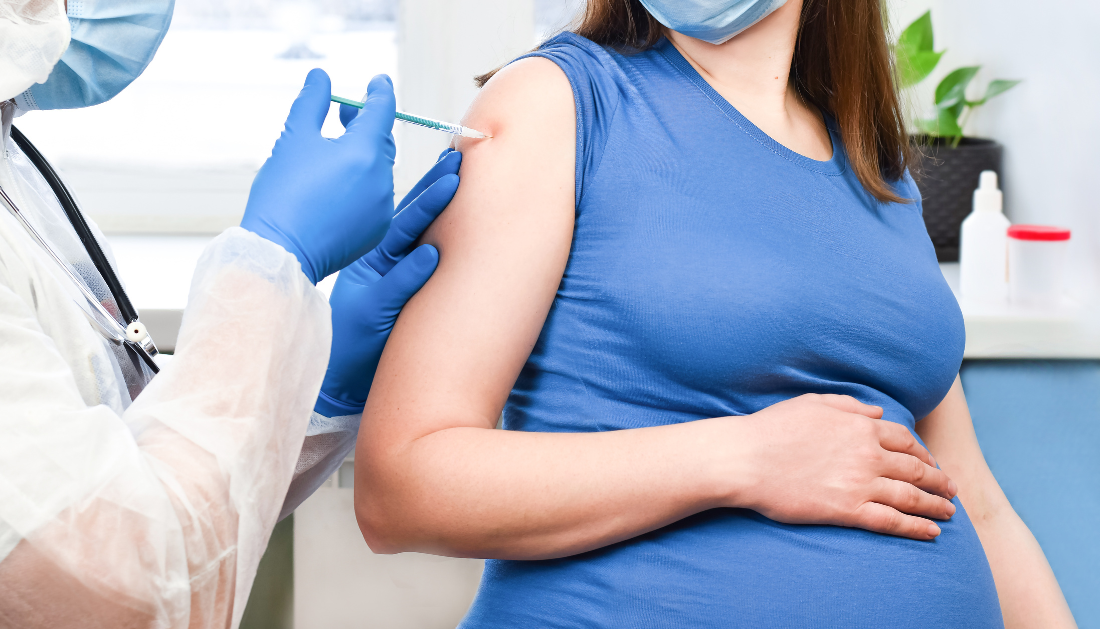

Researchers examined the reactogenicity and effects of the coronavirus disease 2019 (COVID-19) vaccine on pregnancy outcomes related to severe acute respiratory syndrome coronavirus 2 (SARS-CoV-2) infections among women in perinatal or pregnancy stages in a recent study published in BMJ Global Health. The researchers conducted a systematic review of major databases and a meta-analysis.
Background
Studies indicate that pregnant women are more susceptible to severe SARS-CoV-2 infections, which can lead to significant morbidity and a higher risk of death when compared to non-pregnant women of the same age.
Pregnant women were not included in most of the phase III trials for COVID-19 vaccines, even though the vaccine has been the single most effective intervention in stopping the pandemic’s spread and reducing the severity of infections. As a result, there is uncertainty regarding the efficacy and safety of COVID-19 vaccination in pregnant women.
Pregnant women’s hesitation to receive the COVID-19 vaccination has also been attributed to worries about its safety.
Furthermore, the results are less relevant and more difficult to apply globally because the evaluations and observational studies that have already been done have only looked at maternal infection and short-term outcomes, in certain nations or areas.
Concerning the study
To fully evaluate the effect of any COVID-19 vaccination on outcomes of SARS-CoV-2 infections, reactogenicity, or maternal and newborn health when given to women before or during pregnancy, the researchers performed a systematic review.
A comprehensive search was conducted across all major databases, including websites and preprint servers, to identify pertinent papers that reported on the effects of COVID-19 on pregnant women. Additionally, the researchers contacted organizations monitoring expectant mothers who had taken the COVID-19 vaccine.
Studies reporting both unadjusted and adjusted effects of the COVID-19 vaccination on women who received it either before or during their pregnancy were included in the review. These studies used a test-negative design and comparison cohorts.
Pregnant women with symptoms resembling COVID-19 comprised the study population in these investigations, and results about hospital admissions for mothers and SARS-CoV-2 infections in mothers were investigated. One of the consequences was that the newborns had an illness similar to COVID-19.
The case cohort consisted of women who tested positive for SARS-CoV-2, while the control cohort consisted of women who did not. It was determined what vaccination status each member of the two groups had.
The study design, the prevalent SARS-CoV-2 variant at the time, the study setting, adjustment variables like body mass index, age, gestational age, diabetes, educational attainment, and hypertension, the type and platform of the vaccine, the number of doses administered, and the stage of pregnancy at the time of vaccination were all taken from the studies.
The number of women who were or were not vaccinated, the mother’s SARS-CoV-2 diagnosis before pregnancy, hospital admission, severe COVID-19, or mother death from COVID-19, and outcomes in the offspring, such as infection within six months of birth, were among the infection-related outcomes taken from the studies.
Preterm delivery, miscarriage, postpartum hemorrhage, cesarean section, hypertensive disorders, and gestational diabetes were among the pregnancy-related events that mothers experienced. Results in the offspring included stillbirth, small size for gestational age, neonatal death, and hospitalization to the neonatal critical care unit (ICU).
Outcomes
According to the study, there were no significant side effects and the COVID-19 vaccination successfully shielded pregnant women against SARS-CoV-2 infections and related problems. The COVID-19 vaccine also seemed to reduce the likelihood that expectant mothers will experience hypertensive problems, require a cesarean section, or require admission to the newborn intensive care unit.
The most often reported adverse reaction following immunization was injection site pain. According to the meta-analysis, pregnant women who had received all recommended COVID-19 vaccinations had a 61% reduced chance of contracting SARS-CoV-2 during their pregnancy and a 94% lower chance of needing hospital admission as a result of COVID-19.
Pregnant women who received vaccinations had a 9% lower chance of a cesarean delivery and a 12% lower risk of hypertensive problems during pregnancy, according to adjusted cohort studies. Also, there was an 8% decrease in the need for neonatal intensive care unit hospitalization for babies born to immunized mothers.
In conclusion
Overall, the study discovered that there were no negative effects on the pregnancy or the offspring from COVID-19 immunizations given to mothers before or during their pregnancies.
Additionally, it greatly decreased the chance of SARS-CoV-2 infections in expectant mothers and the risk of severe COVID-19 that necessitates hospital hospitalization. Moreover, COVID-19 vaccinations reduced the chance of hypertension associated with pregnancy, cesarean delivery, and neonatal intensive care unit admission.
For more information: Effectiveness and safety of COVID-19 vaccines on maternal and perinatal outcomes: a systematic review and meta-analysis, BMJ Global Health, https://doi.org/10.1136/bmjgh-2023-014247
more recommended stories
 Reducing Alcohol Consumption Could Lower Cancer Deaths
Reducing Alcohol Consumption Could Lower Cancer DeathsKey Takeaways (At a Glance) Long-term.
 NeuroBridge AI Tool for Autism Communication Training
NeuroBridge AI Tool for Autism Communication TrainingKey Takeaways Tufts researchers developed NeuroBridge,.
 Population Genomic Screening for Early Disease Risk
Population Genomic Screening for Early Disease RiskKey Takeaways at a Glance Population.
 Type 2 Diabetes Risk Identified by Blood Metabolites
Type 2 Diabetes Risk Identified by Blood MetabolitesKey Takeaways (Quick Summary) Researchers identified.
 Microglia Neuroinflammation in Binge Drinking
Microglia Neuroinflammation in Binge DrinkingKey Takeaways (Quick Summary for HCPs).
 Precision Oncology with Personalized Cancer Drug Therapy
Precision Oncology with Personalized Cancer Drug TherapyKey Takeaways UC San Diego’s I-PREDICT.
 Iron Deficiency vs Iron Overload in Parkinson’s Disease
Iron Deficiency vs Iron Overload in Parkinson’s DiseaseKey Takeaways (Quick Summary for HCPs).
 Can Ketogenic Diets Help PCOS? Meta-Analysis Insights
Can Ketogenic Diets Help PCOS? Meta-Analysis InsightsKey Takeaways (Quick Summary) A Clinical.
 Silica Nanomatrix Boosts Dendritic Cell Cancer Therapy
Silica Nanomatrix Boosts Dendritic Cell Cancer TherapyKey Points Summary Researchers developed a.
 Vagus Nerve and Cardiac Aging: New Heart Study
Vagus Nerve and Cardiac Aging: New Heart StudyKey Takeaways for Healthcare Professionals Preserving.

Leave a Comment